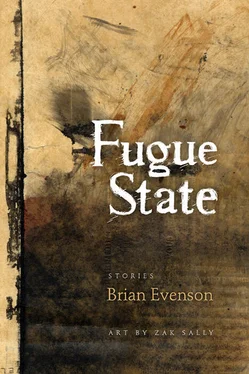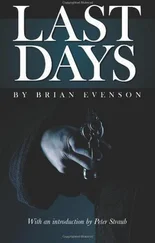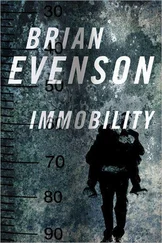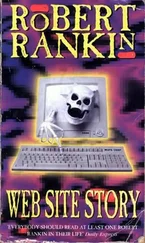He closed the oven door and hurriedly left.
Two floors down, he knocked on an unsealed door and heard behind it some transient living sound, cut off nearly as quickly as it had begun.
“Hello?” he called.
He knocked again, but heard nothing. He pressed his ear to the door, thought he could hear, vaguely, just barely, something pressed to the other side, breathing. Was that possible, to hear something breathing, through a door? Perhaps it was his own breathing, he thought, and this made him feel as if he were on both sides of the door at once, and made him wonder why he wouldn’t open up for himself.
“I don’t mean any harm,” he said. No response. “I’m just a neighbor,” he said. “I just want to talk.” Still no response.
“Shall I break down the door?” he asked. “If I do that, anybody can get in.”
He waited a few minutes, then got out his prybar and his hammer. Aligning the prybar in the gap between door and wall, he struck the end with the hammer, started to drive it in.
He was a little startled when the voice that rang out from behind the door was not his own.
“All right,” it said. “All right.”
He worked the prybar free of the crack, then stepped back. The dead-bolt clicked. The door handle shivered, and the door drew open.
Behind it was a small man, scarcely bigger than a child, wearing a moth-eaten sweater. Though not old, he seemed to be hairless, the skin hanging sallow on his face. His mouth and his nose were hidden behind a surgical mask that he had doubled over to make fit. He stood mostly hidden, hand and head visible, a pistol in the former.
“Well?” the small man said. “What is it?”
“I’m your neighbor,” Hapner said.
“I suppose you want to borrow a cup of sugar.”
“No,” said Hapner. “To talk.”
“All right,” said the man. “You’re here. Talk.”
“Can’t I come in?”
“Why do you need to come in?” the man asked, a little surprised. “There’s no reason to come in. It’s not safe.”
Hapner shrugged.
The man looked at him for a long while. His eyes, protruding and damp, seemed slightly filmed. He opened the door farther, shifted the pistol to his other hand.
“What floor?”
Hapner counted in his head. “Five floors up,” he said.
“Eighth floor,” said the man. “Why didn’t you just say eighth? I thought all the eighth was boarded off.”
“Almost all,” lied Hapner. “Every door but one.”
The man’s eyes narrowed. “You’re not ill, are you?”
“Don’t be ridiculous,” said Hapner. With what? he wondered.
“O.K.,” said the man. “O. K. Prove it. Tell me your name.”
“My name?” said Hapner.
It started with a letter midway through the alphabet, he knew, one he could almost remember. It was there, nearly on the tip of his tongue, but what exactly was it?
“Well?” the man said. “Either you know your name or you don’t.”
“Mind if I use your bathroom?” asked Hapner.
“The bathroom?” said the man, surprised. “I, but I—”
“Thank you,” said Hapner, and, hands raised above his head, eased his way carefully past the small man without touching the pistol, toward where he suspected the bathroom must be.
“Wait,” the man said. But Hapner kept walking, slowly, as if under water. He gritted his teeth, waiting for the man to shoot him in the back, following each slow step with another slow step until he reached the bathroom. He opened the door and slipped quickly inside, locking it behind him.
What now? he wondered.
He regarded his face in the mirror, his frightened eyes, then opened his bag and removed the answering machine. Having unplugged the man’s electric razor, he plugged his answering machine in and dialed the volume down. He held the machine pressed against his ear and depressed the button.
“Hello?” a voice said into his ear. “Mr. Hapner? Is that in fact the correct name?”
Is it? Hapner wondered. The voice kept on. There were other names mentioned, but Hapner struck him as the only viable one. Arnaud. He, Hapner, was looking for Arnaud, he discovered, and for Bentham as a way to reach Arnaud. The answering machine made it all perfectly clear. Hapner, he made his lips mime. He rewound the tape and listened to his name again, then again, until he was certain he could remember it. At least for a few minutes.
The small man was knocking on the bathroom door, urging him to come out or be killed.
“I’m coming,” Hapner said. He quickly packed the answering machine away and opened the door. The small man was there, face red, pistol aimed at Hapner’s waist.
“Hapner,” he said. “My name’s Hapner.”
The pistol wavered slightly, a strange expression passing across the man’s eyes. “I know a Hafner on the eighth floor,” he said, “or ninth. Can’t remember. But you’re not him.”
“No,” said Hapner quickly. “I’m Hapner, not Hafner. Eighth floor as well. Strange coincidence, no?”
The man looked at him a long time, then took a few steps back, gun still poised. “Tell me what you want again?” he asked.
“That depends,” said Hapner. “Are you Arnaud?”
“No,” said the small man. “Who?”
“What about Bentham?”
“I’m Roeg.”
“Do you know either an Arnaud or a Bentham?”
“Do they live in this building?”
“I don’t know.”
“I don’t think so,” said the small man. “These are strange questions to ask. If they do live here, I don’t know them.”
“Then I don’t want anything,” Hafner said, and started to go.
“I thought you wanted to talk,” said Roeg.
Hapner turned, saw Roeg had let his body sag. The small man went and sat down on the couch. He sat there, eyes looking exhausted, finally motioning Hapner into the chair next to him. “It’s been long time,” he said. “Let’s talk.” But it was not an us who talked, for Hapner spoke hardly at all. Roeg hadn’t left the house in several weeks, he claimed, ever since the plague had begun. Plague? Hapner wondered, but just nodded. Roeg’s wife had gone out and never come back. She was, Roeg figured, probably dead.
“But maybe she just left,” said Roeg.
Roeg took the surgeon’s mask off his face and laid it on the coffee table, smoothed it out with the palm of his hand. His mouth, Hapner saw, was delicately formed, the lips nearly translucent.
“Maybe,” said Hapner. “I’m sorry.”
Then, Roeg said, someone had arrived wearing protective suits. Each apartment had been opened. If anyone was found with indications, they were boarded in. No doubt it had been the same on Hapner’s floor.
“No doubt,” said Hapner.
“Eventually they stopped coming,” said Roeg.
“Probably dead themselves,” said Hapner.
“Probably,” said Roeg, and lapsed into silence, staring at the tabletop.
“And what now?” asked Hapner.
“Now?” said Roeg. “How should I know?”
Almost as quickly as the information was given to him, Hapner felt it begin to slip away, the details wavering and eroding, only a large, vague sense of contagion remained. The knowledge itself was being simplified, made brutish within his head. He wondered how much of even this he would remember, and for how long?
There were other things Roeg was telling him, he realized, but even as the small man was saying them, Hapner felt them going. The authorities, he did remember Roeg saying, were silent. As for the silence, either Roeg didn’t know its cause or Hapner had somehow missed it or was already forgetting it. Perhaps it was simply ongoing silence, unexplained.
As Roeg spoke on, Hapner became more and more confused. When he realized, from Roeg’s puzzled look, that he must have asked a nearly identical question twice, he began to be concerned.
Читать дальше












